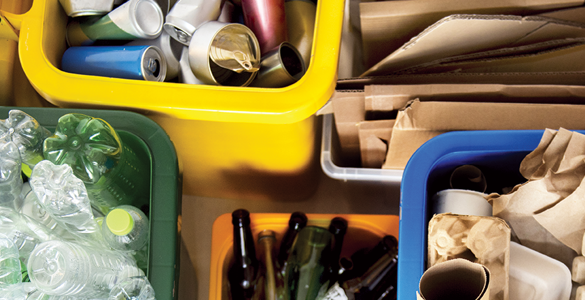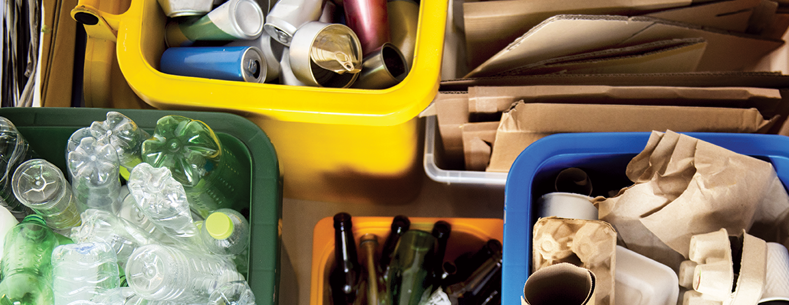On Tuesday 8 May 2018 the Minister for Environment, Hannah Blythyn, will make a statement on Extended Producer Responsibility (EPR). The OECD describes EPR as:
….a policy approach under which producers are given a significant responsibility – financial and/or physical – for the treatment or disposal of post-consumer products.
The Minister is expected to announce measures to increase resource efficiency in Wales. This is likely to be informed by the outcomes of a study commissioned by the Welsh Government, which includes an assessment of EPR schemes. The study has been carried out by Eunomia, an environmental consultancy, and was first announced in a September 2017 written statement by the Cabinet Secretary for Energy, Planning and Rural Affairs, Lesley Griffiths, on Extended Producer Responsibility Research. She said:
I have commissioned a study to assess possible interventions to increase waste prevention, increase recycling and reduce land and marine based litter. Producer responsibility schemes such as the current schemes in place in the UK will be included in the research. Deposit Return Schemes will also be included. The research will also assess the likely environmental, economic and social impacts of potential extended producer responsibility (EPR) schemes, including any potential unintended consequences.
UK statistics on waste show Wales’ recycling rate at 12% above the UK average. With a recycling rate of 57.3% Wales is already exceeding the EU target for the UK to recycle at least 50% of household waste by 2020. A report by Eunomia which looked at comparable recycling data across the world, reported that Wales is the third best municipal waste recycling nation worldwide, second only to Germany in Europe, and swiftly closing in. Nevertheless, however positive the picture, there is still more to be done to achieve the Welsh Government’s goal of achieving zero waste by 2050, as set out in the Welsh Government’s Towards Zero Waste strategy. 
Extended Producer Responsibility
Introduced by the EU Waste Framework Directive, EPR is a way of encouraging producers to consider the post-consumer phase of a product’s lifecycle by giving them responsibility for it.
By giving producers responsibility for the collection, sorting, treatment, disposal etc. of a product, design will become more efficient, and the product will be easier to sort, break down and dispose of. This approach incentivises producers to make their products easier to recycle, encouraging eco-design.
The EPR approach supports Welsh ministerial plans to move towards a circular economy, where products/packaging never become waste, but contribute positively to the economy.
Even without policy drivers, a number of companies are making pledges toward tackling waste through better product design. Significantly, companies responsible for more than 80% of plastic packaging on products sold through UK supermarkets signed up to the UK Plastics Pact, as a recent example of this.
Deposit Return Scheme
The Minister for Environment, Hannah Blythen AM, confirmed to Plenary on 21 March 2018 that the Eunomia study on EPR “will include analysis of Deposit Return Schemes” or DRS.
The purpose of a DRS is to encourage the return of materials into an organised reuse, recycling or treatment/disposal process. The basic principle of deposit systems on beverage packaging is that retailers, on purchasing beverage products, pay an additional fee on the packaging in the form of a deposit. The OECD defines DRS as follows:
A deposit-refund system is the surcharge on the price of potentially polluting products. When pollution is avoided by returning the products or their residuals, a refund of the surcharge is granted.
Following a 2015 feasibility study, Scotland was the first UK nation to announce its commitment to developing a DRS, now being taken forward by Zero Waste Scotland.
More recently the UK government announced its intentions to introduce a DRS in England “for single use drinks containers (whether plastic, glass or metal), subject to consultation later this year”.
Whilst Wales has been awaiting the EPR report (originally due in February) Assembly Members have been urging rapid action. For example, Simon Thomas AM responded to an April 2018 plenary statement from the Minister for Environment to say “we’ve discussed the possibilities or feasibilities in Wales. We really are beyond that now”. Perhaps the Cabinet Secretary’s statement will provide the clarification sought.
Article by Lorna Scurlock, National Assembly for Wales Research Service
Source: Eunomia, Recycling – Who Really Leads the World?






